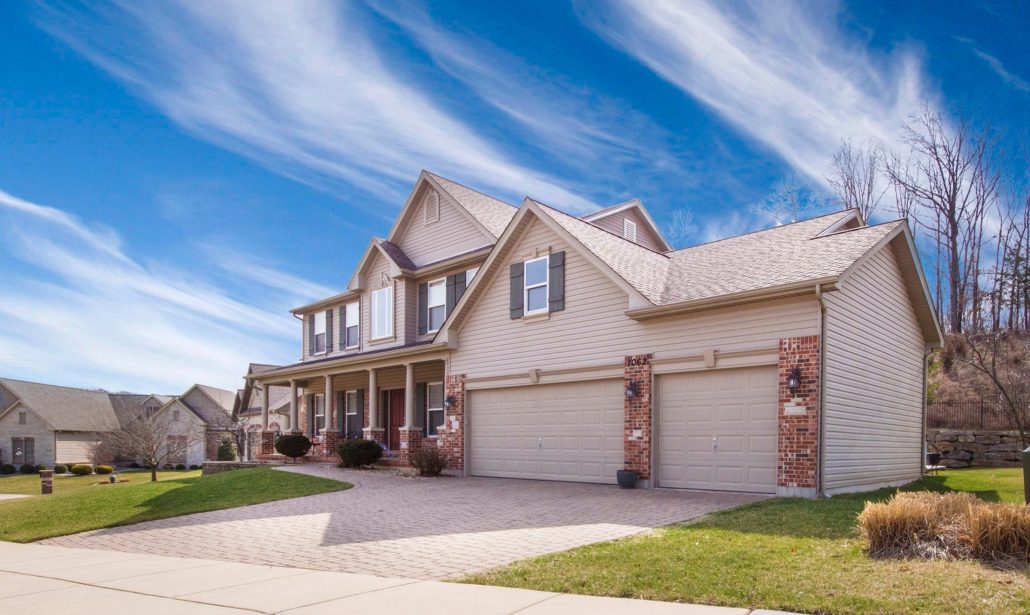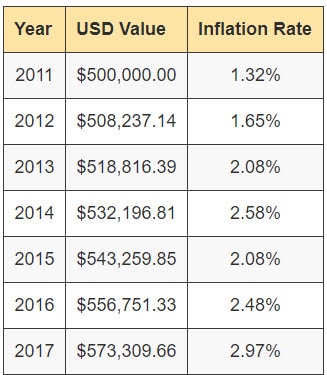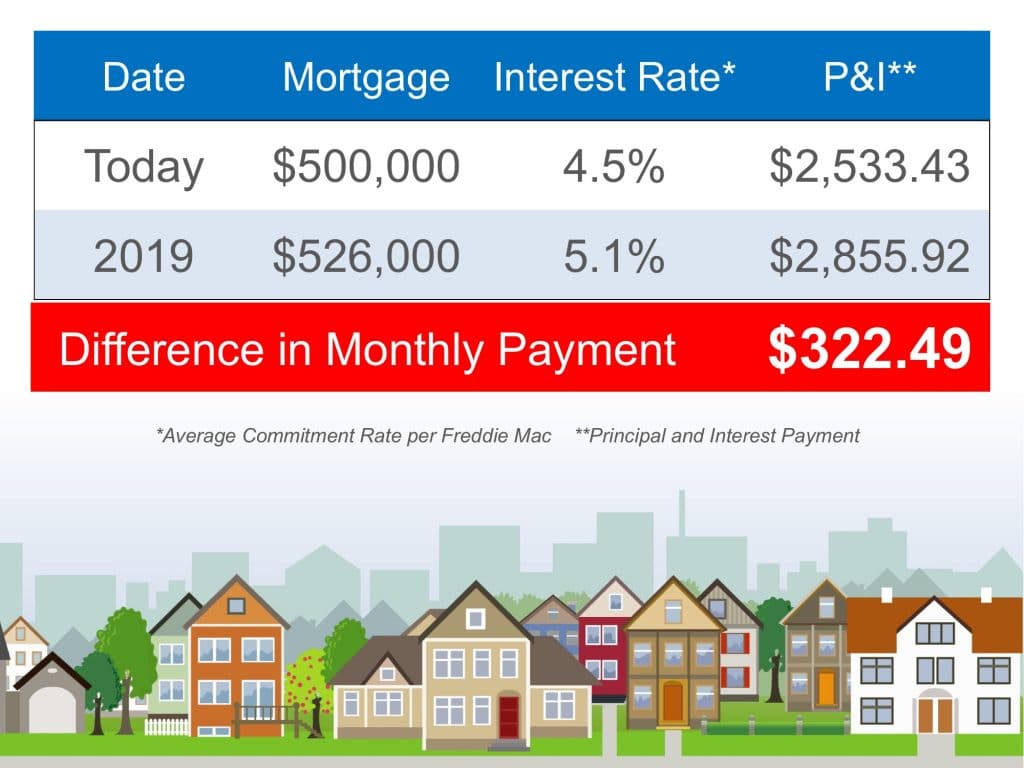
REAL ESTATE VALUES GO UP WHILE PAYMENTS STAY THE SAME
With a 2.9% inflation rate, a $1 million dollar home will likely be worth at least $1.33 million in ten years.*
Similarly, rents also usually increase with inflation. A renter paying $5,000 now will likely be paying over $6,600 in ten years if we continue to see 2.9% inflation.*
In contrast, if the $1 million homeowners above have a 30 year fixed loan, their payment will still be about the same in ten years.
If we look at housing prices alone (without local market influence), a $500,000 home in 2011 was worth almost $575,000 in 2017 and will continue to increase in the years to come.**

WHY IS INFLATION GOOD FOR REAL ESTATE?
1970s inflation was almost a gift for real estate owners with fixed rate loans from the 1960s; the value of their homes skyrocketed while wages increased too.
Many homeowners were able to pay off their mortgages and end up with a very valuable asset that doubled as an inflation hedge and a potential retirement nest egg.
According to the Wall Street Journal, consumer prices rose 2.9% over the last 12 months.
This is the most prices have risen since 2011, indicating that inflation may finally be returning.
We like to remind buyers and agents alike, however, that Real Estate is an excellent inflation hedge. As a hard asset, its value often keeps pace with inflation at a minimum (and often exceeds it).
This is yet another reason to encourage buyers to buy now and not wait.

Jay Voorhees
Founder/Broker | JVM Lending
(925) 855-4491 | DRE# 01524255, NMLS# 335646
*Scenarios from the Compass Daily Newsletter.
**Source: U.S. Bureau of Labor Statistics began tracking the Consumer Price Index for Housing in 1967. In addition to housing, the index produces monthly data on changes in prices paid by urban consumers for a variety of goods and services.



